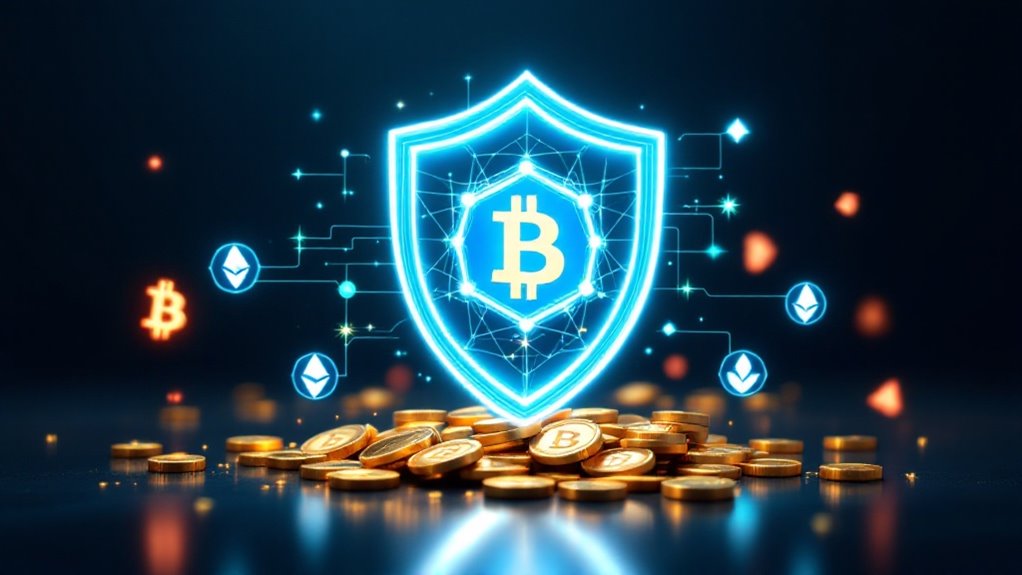Digital currency represents money's evolution from physical cash to computer code, enabling instant transfers across borders through secure networks. Like water finding new paths, these currencies flow through blockchain systems protected by advanced encryption and smart contracts. While offering benefits like reduced fees and increased access to financial services, digital currencies face challenges including price volatility and regulatory uncertainty. The future promises a fascinating blend of traditional and digital systems, transforming how humans interact with money.

Money, in its latest evolutionary leap, has shed its physical form to become strings of code racing through the digital domain. Digital currencies, from cryptocurrencies like Bitcoin to central bank digital currencies, represent value that exists purely in electronic form, enabling instant transfers across borders with the tap of a screen. Like water finding new paths through changing landscapes, these digital assets flow through networks secured by cryptographic locks and keys.
The technology behind digital currencies reads like a masterclass in modern innovation. At its heart lies the blockchain, a digital ledger that stretches across thousands of computers, each one keeping watch over every transaction like vigilant sentinels. Smart contracts stand ready to execute agreements automatically, while digital wallets safeguard virtual treasures behind walls of encryption that would make ancient fortress builders marvel. With enhanced record-keeping, every transaction leaves an indelible digital footprint, creating unprecedented transparency in financial dealings. Mining rewards incentivize participants to verify and secure transactions by solving complex mathematical problems.
These digital alternatives to traditional money offer tantalizing benefits: lightning-fast transfers that make old-school wire services look like horse-drawn carriages, reduced fees that put more money in people's pockets, and financial services for those who've never set foot in a bank. The emergence of decentralized finance applications has created new opportunities for users to earn interest by lending their crypto assets.
Digital currencies sweep aside traditional banking hurdles, delivering speed, savings, and financial access to the previously unbanked masses.
Yet, like any pioneering technology, digital currencies come with their share of growing pains. Their values can swing wildly like leaves in an autumn storm, and the regulatory landscape remains as unpredictable as weather in spring.
The world's governments and central banks watch this digital revolution with mixed emotions, some embracing the change while others approach it with cautious skepticism. They're crafting rules and regulations that attempt to harness the innovation while protecting against risks like money laundering and fraud.
Meanwhile, the technology continues to evolve, with newer systems addressing earlier concerns about energy consumption and transaction speeds.
Looking ahead, digital currencies appear poised to reshape our relationship with money. As traditional financial institutions begin to embrace these innovations, the line between old and new systems blurs. The future might not be a complete replacement of traditional currency, but rather a harmonious blend where digital and physical money coexist, each serving different needs in our increasingly connected world.
Frequently Asked Questions
What Happens to My Digital Currency if the Internet Goes Down?
Digital currency becomes temporarily inaccessible for transactions when internet connectivity fails. While online wallets are affected, offline storage methods like hardware and paper wallets keep assets secure until network service resumes.
Can Governments Track All My Digital Currency Transactions?
Government agencies can track most cryptocurrency transactions through blockchain analysis, exchange data sharing, and monitoring tools. While privacy coins offer more anonymity, complete untraceable transactions remain difficult given current surveillance capabilities.
How Do I Recover Lost Digital Currency if I Forget Passwords?
Forgotten passwords can be recovered using seed phrases/recovery words, contacting platform support, or utilizing password recovery tools. Professional crypto recovery services may assist as a last resort. Always keep secure backups of credentials.
Which Digital Currencies Are Most Likely to Be Banned by Governments?
Governments are most likely to ban privacy-focused cryptocurrencies like Monero and Zcash, unregulated stablecoins, and decentralized cryptocurrencies that threaten monetary control or enable illicit activities like tax evasion and money laundering.
Are There Age Restrictions for Buying and Trading Digital Currencies?
Most cryptocurrency exchanges require users to be 18+ and verify age through KYC procedures. While minors can own crypto, they typically need supervised accounts managed by parents or guardians to trade legally.









